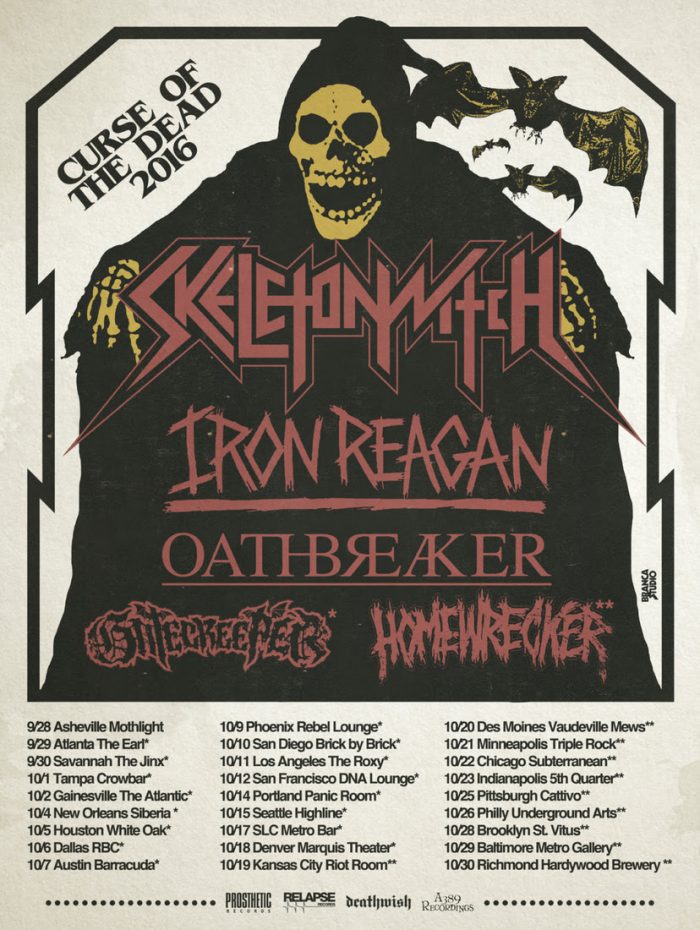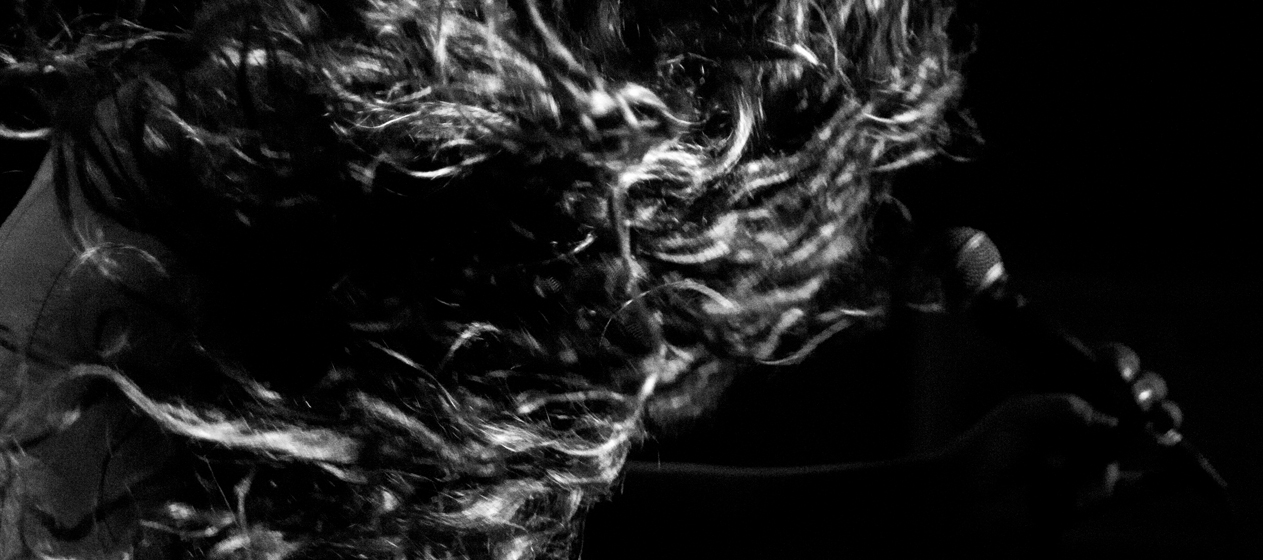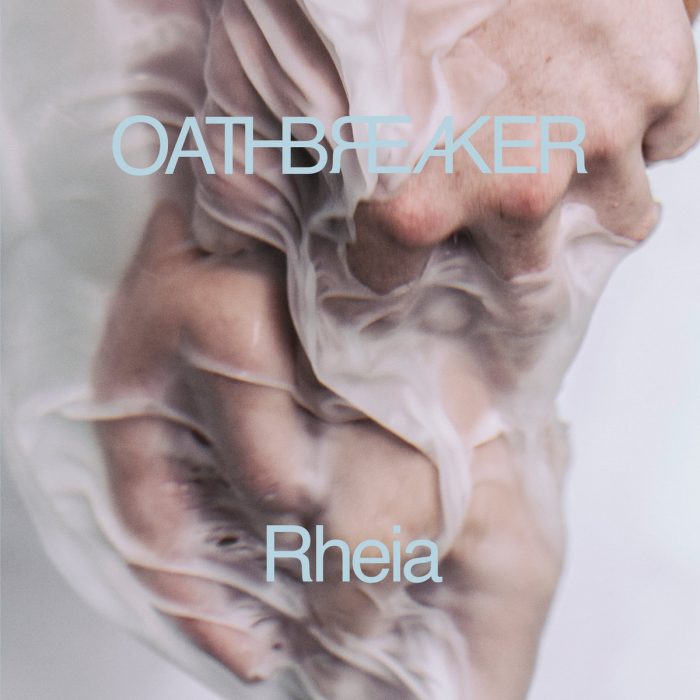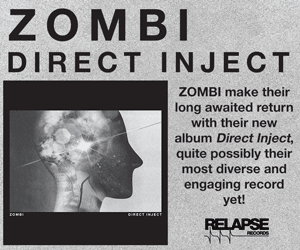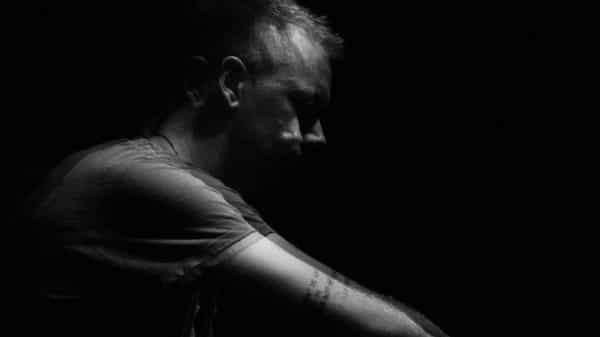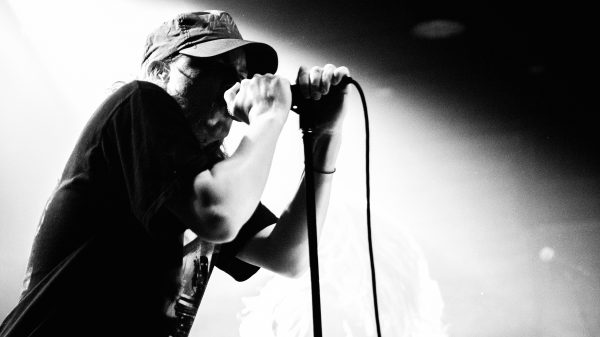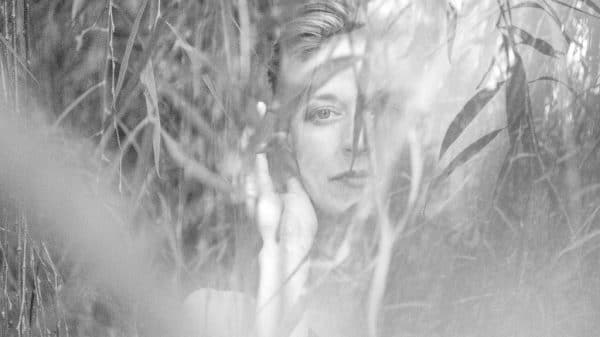Interview & Photos: Teddie Taylor
Oathbreaker surprised everyone when their latest album began with clean, acapella vocals. Rheia is in a category of its own, showcasing an expanse of various sounds the band has never before fully explored. The Belgium-based group, only having toured America twice before since their 2011 Maelstrom, are currently travelling across the US with Skeletonwitch, Iron Reagan and Gatecreeper. Outside of a coffee shop during their first-ever stop in New Orleans, I talked to Caro Tanghe and Gilles Demolder about the very personal, very breathtaking Rheia.
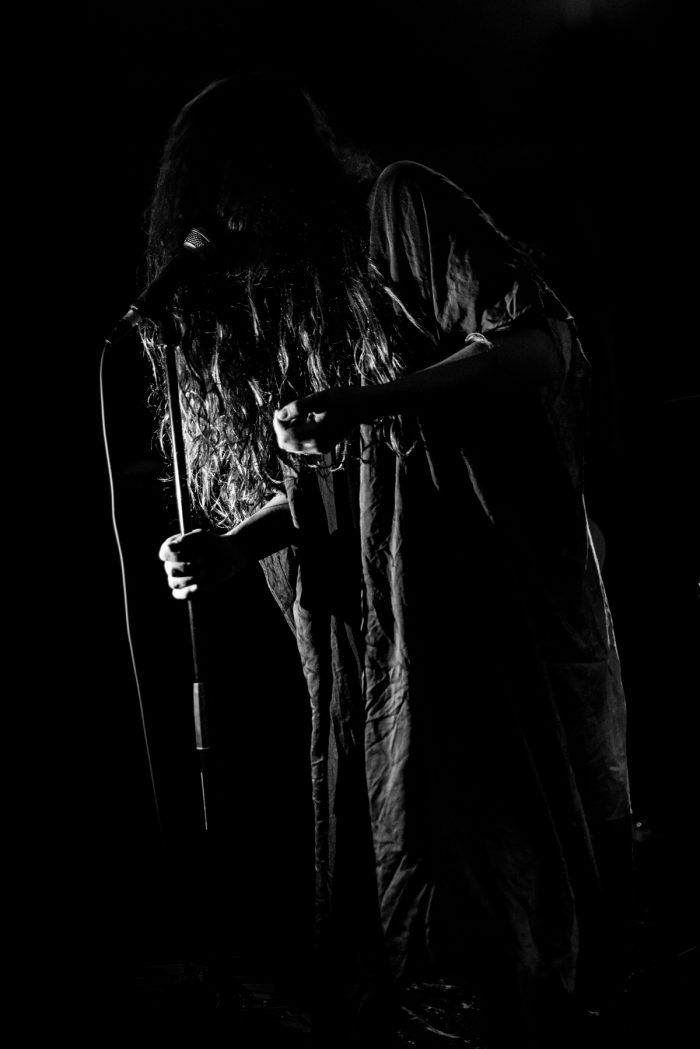
This tour now. It’s only been a few days because it started last week, but how has it been going so far?
Caro: It’s been really good. The bands are really nice. We didn’t know any of them before. The shows have been good. The people have been good. The bands are good. I’m really excited for the rest of this tour.
Gilles: It’s the first time that we’re doing a support tour over here, so we really didn’t know what to expect, but we’re all hyped and the record just came out. Everyone’s really hyped. The crowds have been good for us, too.
Is it the second or third time y’all have been here?
G: Third.
C: This is the third time. But the first time we’re doing a support thing, yeah.
So, this album. It’s the most diverse thing you’ve ever done, but it’s probably the most different thing I’ve heard all year. What made you decide that you wanted to do so many different things on one album?
G: I started talking about that idea, like it popped into my head, Hey, Caro’s singing voice is so, so good and we’re not doing anything with it? I think it takes a while for a band to realize what their strengths are. It popped in my head – we like all of these bands and why does one thing have to be like that or everything has to be divided . So, I don’t know. I just thought about it and it took us a long time to figure it out. We did so many demos. It all sounded really weird, and it’s kind of uncomfortable to try something weird. I freaked out about this record so much.
C: [Laughs]
G: The month before we were recording I would wake up and be like, Oh shit! We’ve gotta do this, and this would be good. It took us like 3 years to figure it out.
Really?
C: Yeah, because the different elements were all there, but it’s really hard to combine all of those and [not] make it sound weird. You just don’t know where you’re going. There’s a thin line.
G: Do I like this, or…
C: Balancing. Is this too much, or is it still this?
G: There’s no one to tell you. There’s nothing you can hold onto like, Hey, this sounds like that. I mean there’s a lot of stuff on the record that sounds like something else, but a lot of the parts were like, Fuck, fuck this, I don’t know if this is any good but I like it, so fuck it, let’s do it. I think we started writing this album two years ago, and we threw a lot of songs away, too, because you progress as a band and realize, Oh shit, we can do this and more things.
C: Especially if there’s such a long time in the process of writing. It’s like, especially you (Gilles), you write something and then six months later, you don’t like it anymore so you throw it away and start all over.
G: And then three months after that, you listen to it and it’s good again.
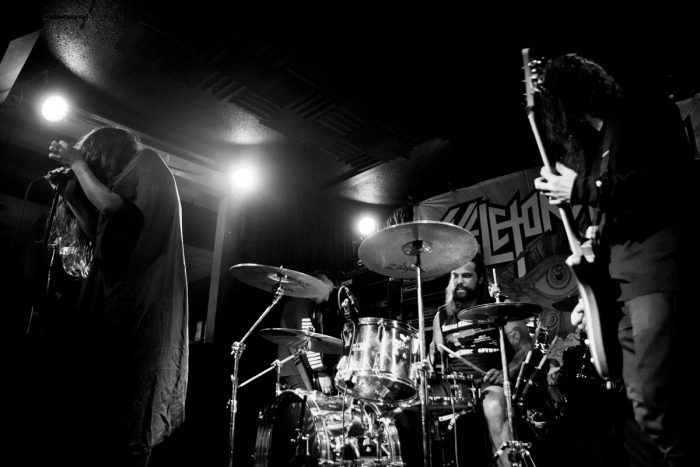
Pretty much everyone loves the new album. Having spent so much time on it, how does that make you feel? I mean, obviously you probably feel pretty good, but…
C: I mean, I don’t know. Releasing this, we liked it, but it’s always a leap in the dark. You never know what people are going to think about it. Also, that’s how I feel on this tour. People have been asking me, Hey, wow, there’s a lot of Internet attention and how does that make you feel? And it’s super cool, but playing live is a completely different thing. People can be hyped about it on the Internet, but it’s not the same as playing.
G: There’s a certain expectation for a live show. This is the first time we’re playing all these songs live, so the first show was, Let’s fucking do it. I was on tour with my other band for like three weeks before this and we didn’t have any time to rehearse.
So this is the rehearsal!
C: We’re there. I think. I mean, we’re starting to get there. I feel like the stakes are raised because of all of the…it puts a bit of pressure on you. You want to deliver, but then…
G: You just go to work on it for so long. We were talking about it, like either this is gonna be really good or really bad. We talked about it for two years—about trying to do this band full-time. So let’s hope. It’s a weird record. I thought, People are just going to hate it and I’m just going to go have a regular job. Up until now it’s been good. I’m hyped.
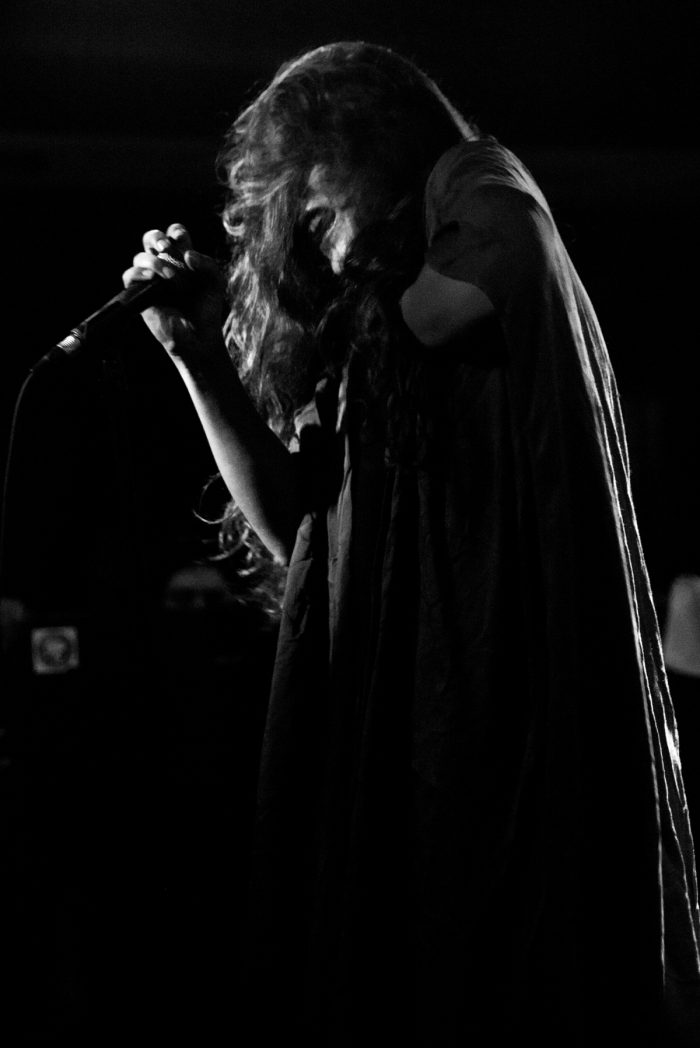
You released singles, but when I listened to ‘Rheia’ I felt like you’re supposed to listen to it from beginning to end. Did you intend for it to be that way?
G: Yeah, that’s what we’re trying to do with every record. I feel like an album needs to be one story that’s being told from song one ‘til the last song. And I’m glad that you’re saying this, because that’s what I feel about this record too. It needs to have the ups and downs and the resting dynamics. We put a lot of effort into how to approach an intro of a record and the last song. If we have these two songs, let’s write something that feels like this… The idea for the record has been there for a really long time. We need something like this to start the story and we need an acoustic song. We don’t write whatever. We write the record. It’s always on my mind when we write it. Lyric-wise, I guess it’s the same thing—it’s one story. Not just a bunch of stuff thrown together. One record is one story. It’s one time in your life.
C: You almost have to listen to it from start to end. To me, it was really hard to pick out singles, because they’re only a fraction of what a record is. Having a song that has to represent all of it is not easy.
G: And it’s a long record. I’ve been wanting to write a long record for a while.
C: I remember when we made our friends listen to it. I don’t mind that people lose focus at some point; it will catch you when it’s interesting again. As long as it’s from start to end, there’s one vibe, one story.
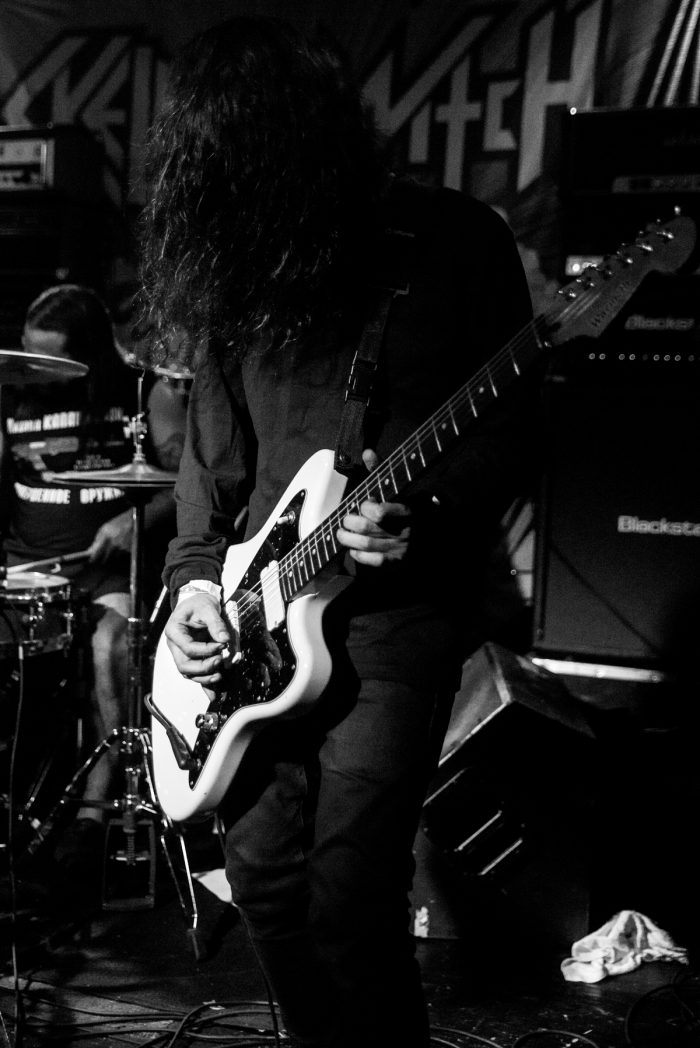
I don’t know if it’s the same lyrics, but “10:56” and “Immortals…” Is that the same? The parts where you’re clean singing sound alike.
C: It’s not the same lyrics.
Okay. It sounded so similar. Were there certain things you tried to carry through the album? Elements you wanted every song to have or you wanted to have show up later in other songs?
C: There always has to be a thread throughout a record. I can’t do 10 types of different vocal things, so there’s always going to be things that come back in songs. Same with music-wise.
G: I think the lyrics are carried through. The whole idea of this record was, so, me and Caro started talking about… That’s actually something you should tell. How we got to this. Caro was in a weird, weird place – if I can say that.
C: Yeah, yeah.
G: I mean I’ve known Caro since we were 12 or 13. We were talking about how all of these things, your family and your values, have so much effect on how you approach life, how you approach relationships and friends. We were talking about that for months and months, and I had a feeling it was good for Caro to…you tell her, it’s not my place to tell this.
C: No, no, no it’s fine. He kind of pushed me to, um…
G: Reflect on life. To get out of yourself. Look at yourself. What am I doing now? Where’re all these things coming from?
C: That was definitely what I needed at that time. I felt like I was really deep-down in a bad place, and he helped me push and get through it and write everything down that were memories or things that happened in my life that had a reflection on what I was doing at that time.
G: I just told her, Why not write this record? If this helps, if all this stuff helps you so much, writing it down would only make it better. Reading the lyrics, I’ve learned stuff about Caro that I had never known…and we just talk all the time. And especially people close to you, I don’t know if they will read any of the lyrics, I mean in your family, but there’s stuff in there that I think is really, like, fuck. It’s hard to put stuff like that out there, I guess.
C: It’s also hard to put into words what you’re experiencing. I think on this record, because of the things that we went through, I tried to write it down being really honest with myself. Just putting it out there, what was happening, putting it into words – yeah, it’s not an easy thing to do.
G: I feel like you’re a lot more open since all of this. Because I’m really close to Caro, she’s always like, Nothing’s wrong, everything’s good, I’ll take care of you but don’t take care of me, I can do this shit on my own. That’s the first time I saw her open up about all this stuff, which is weird for me. That was weird for you, probably even weirder. I don’t know if that was the question, but…
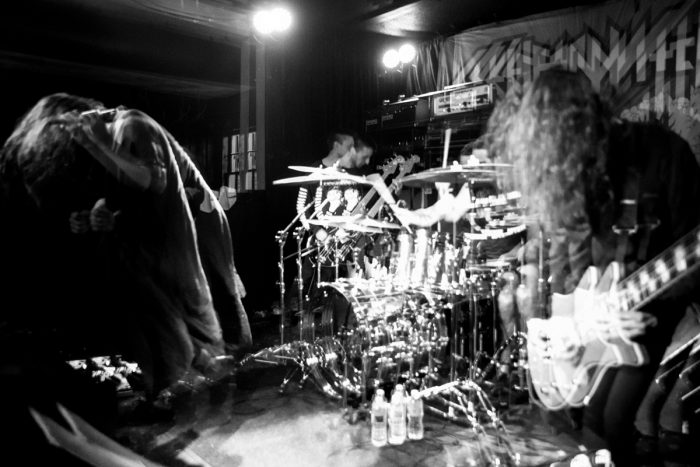
It was a good answer. Okay, the title. Is that about the Immortal and Greek mythology at all?
C: There’s a Greek mythology reference to it, of course. But the idea behind just picking out Rheia is she’s the mother of gods. Basically, throughout the whole story of the record, in all of the lyrics, what tied everything together, to me, was what he said before. In my entire life I’ve always taken care of everyone around me, and the other way around wasn’t always a thing. No one basically took care of me.
G: Since you were really young, like you grew up on your own.
C: Yeah, basically.
G: And that shapes you. That shapes you to be this person, like, Yeah I can do this, don’t worry about me.
C: Yeah, so Rheia as the mother of gods, there were similarities. She’s not a god. She’s the mother of gods, but she’s not a god. No one took care of her. She took care of everyone. So that’s the reference.
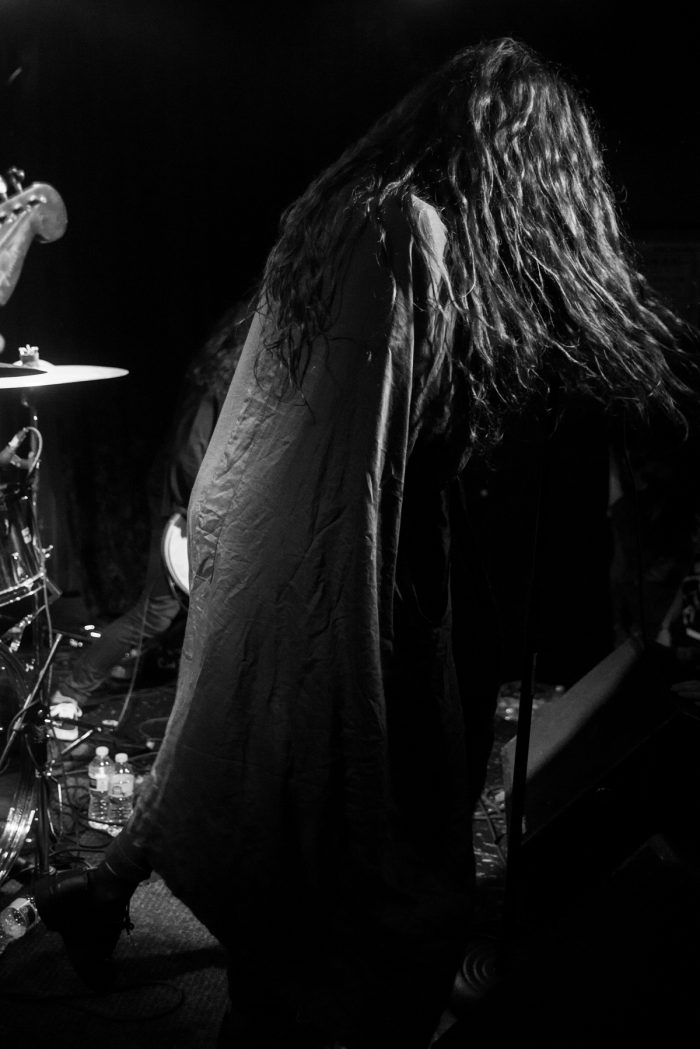
You kind of already answered this. You’ve always had clean singing on certain songs, but there’s so much of it this time. Was it just because you thought, We need to do something different? Why did you choose to do that?
C: I feel like we knew, kind of, where we were going.
G: It was like an experiment. I know we can do this, I just don’t know how. There has to be a way to make all these things work. We listen to a lot of different styles of music, and I was like, There has to be a way to make all this work and not make it sound like… I’m not going to name any bands.
C: [Laughs] Also, I feel like since the beginning of Oathbreaker we didn’t always succeed in that. But we’ve always put a lot of effort into having dynamics and the screaming is such a steady thing. It’s my comfort zone, so pushing through that comfort zone was something that had to happen to contribute to that dynamic. The dynamics before were music-wise, but not that much vocal-wise. Pushing through that comfort zone and trying and trying, it’s not an easy thing to do if you’re so used to hiding behind screaming. Singing is such a whole different spectrum of—
G: It’s so fragile, too.
C: —emotions and feelings you don’t get to have when you’re screaming. It opens up such a different spectrum.
G: We write a lot of songs together on acoustic guitar, so the thing that my mind does is, Sing over it.
C: Immediately you just sing.
G: It works on acoustic guitar, so why aren’t we doing this on the regular songs?
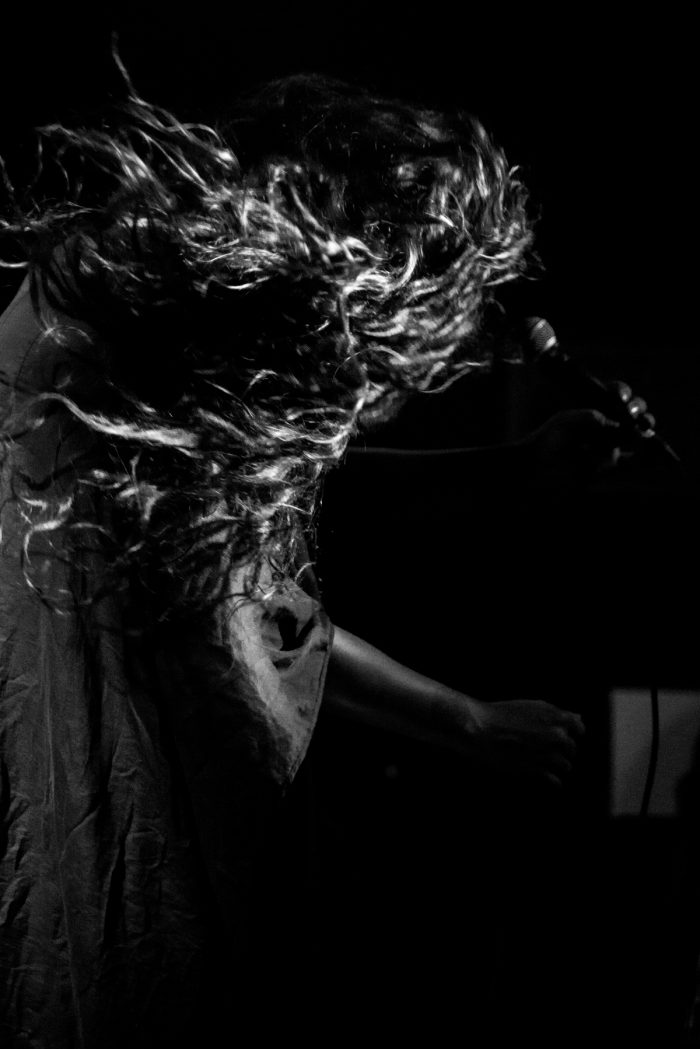
It worked! Is there one song that, whether it was writing lyrics or the music, you feel like you spent more time on than anything else?
C: More time, I don’t know.
Was there one that was harder to put together?
G: I think the hardest part was doing the vocals.
C: Yeah, the vocals in general.
G: It took a long time just trying out different styles. It was the most interesting part, too. We spent weeks, weeks, sitting at home doing demos. We could probably put out ten remixes of a couple songs with different vocal tracks.
C: Also, even for him that I’ve known for so long, it was hard to sing. I would send him out of the apartment and I would do it by myself and then he could come back and listen and I would go somewhere. Trying new things is such a hard process.
G: Recording-wise, the most fun one was the acoustic track, “Stay Here/Accroche-Moi.” We were the last ones to stay in the studio because our drummer and Lennart had to leave early. Not really early, but before we did the acoustic song. The very last thing we did in the studio. We recorded it live in one room with one mic. That’s the second take we did [the album version].
C: Together in one room, it was really intense.
G: It was this weird, like, you have a couple of moments in your life that are this intense and recording that was like, Oh shit.
C: Also, it felt like everything was coming together.
G: And because that was the last thing, because we wrapped it up after that.
C: We had been spending so much time in that studio and that was the very, very end.
G: There’s nothing done on that song. There’s nothing cut. Nothing changed.
C: It’s just one take. It was the second take, but it’s one.
G: We did a couple of takes after that, but if you play a song a couple of times, there’s a feeling that comes out of that. It was kind of nerve-wracking and very beautiful at the same time. And that’s why we did it in one. There’re mistakes, small mistakes in there, but that’s what makes it human. I like that a lot. It didn’t take that much effort, but, I don’t know, I like that song.
C: To me, the coolest part of the whole studio process was definitely that.
G: It felt like we were just playing, like out here, just the two of us jamming.
Not like you were trying or anything.
C: The takes afterwards were like that, kind of. When I listened to them, just the building up and vocal-wise and music-wise, it was perfect in the second take and we just kept that one. Even if there were mistakes in it, it didn’t really matter.
It seems like that fits the story though. How would you describe the whole album?
G: I think with that song. It’s about how we pull each other up. So it made so much sense.
It’s the story of the process.
G: Yeah.
C: Exactly.
Oathbreaker is on the Curse of the Dead tour until 10/30.
